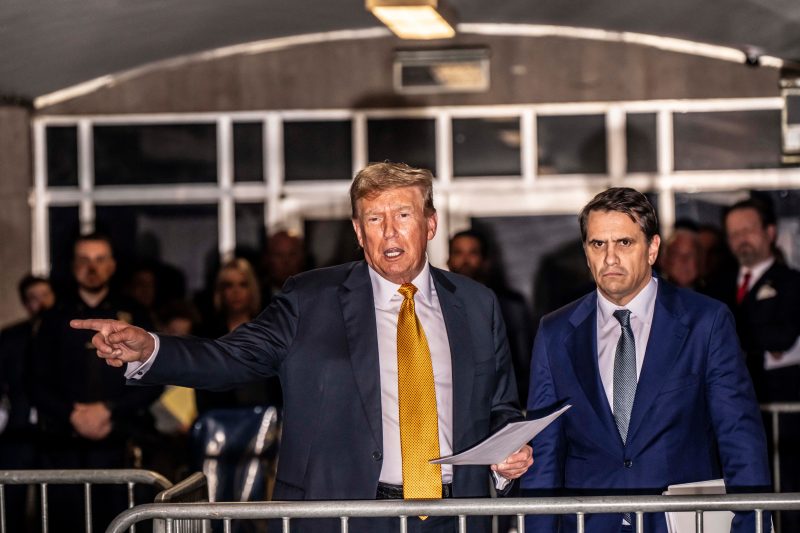In the realm of politics, navigating public perception and managing the continuous flow of information has become increasingly vital. A recent string of events involving former President Donald Trump has highlighted the strategic challenges in maintaining a positive image and reacting to criticism. Over two consecutive days, Trump engaged in a series of backpedaling maneuvers and baseless attacks, showcasing the complexities of public relations in the modern era.
The first day found Trump backpedaling on his previous remarks regarding supporting the COVID-19 vaccine. Despite initially promoting the vaccination during his presidency, Trump faced backlash from some supporters who viewed the vaccine as unnecessary or even harmful. In response, Trump altered his stance during a rally, stating that he took the vaccine but emphasizing the importance of freedom of choice in the matter. This shift in messaging underscores the delicate balance politicians must maintain when addressing contentious issues, particularly in a polarized political climate.
The second day witnessed Trump launching baseless attacks against various political figures and institutions. He targeted Senator Mitch McConnell, labeling him as an ineffective leader within the Republican Party. Additionally, Trump perpetuated claims of widespread voter fraud during the 2020 presidential election, despite numerous courts and electoral officials finding no evidence to support such allegations. These unfounded attacks not only undermine the credibility of Trump’s statements but also contribute to the perpetuation of misinformation and division within the political landscape.
The juxtaposition of backpedaling and baseless attacks within a two-day span reflects the turbulent nature of modern politics and the challenges faced by public figures in maintaining coherent messaging. Strategic communication plays a crucial role in shaping public perception and garnering support, making it imperative for politicians to carefully craft their statements and responses to evolving events. The ability to pivot gracefully, clarify positions, and engage in constructive dialogue is essential in fostering trust and credibility among stakeholders.
Ultimately, the events surrounding Trump’s backpedaling and baseless attacks serve as a case study in the complexities of political communication and the impact of public statements on image and reputation. As political figures continue to navigate the intricacies of public perception and media scrutiny, the lessons learned from these incidents can provide valuable insights into the strategies needed to effectively engage with constituents and stakeholders in an ever-evolving landscape.


























